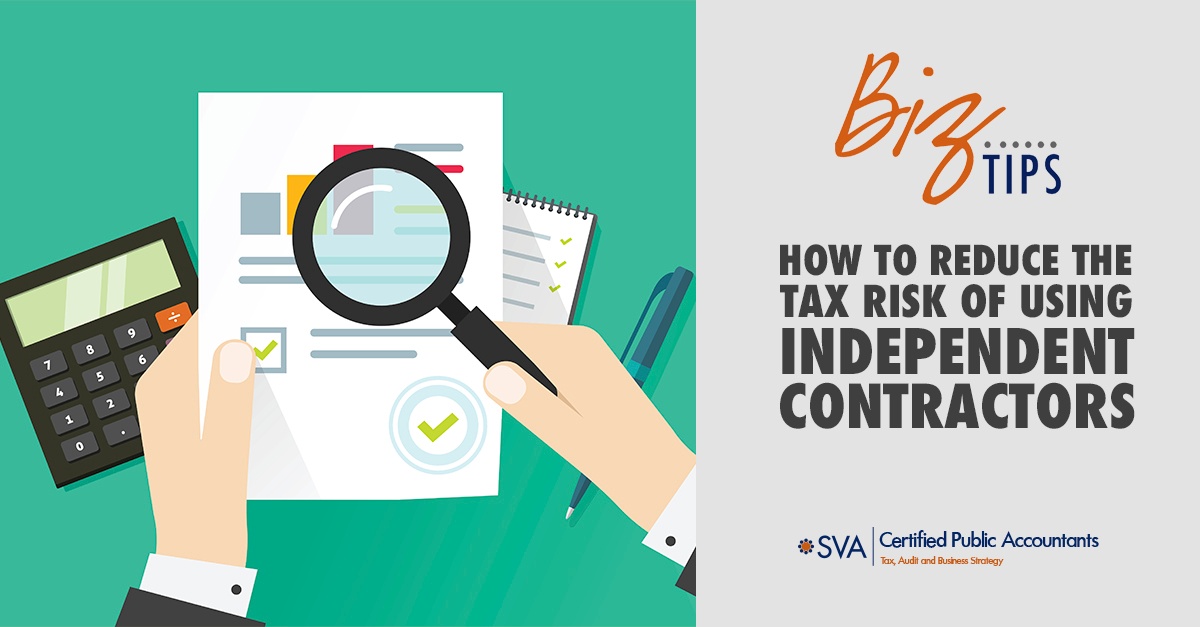Classifying a worker as an independent contractor frees a business from payroll tax liability and allows it to forgo providing overtime pay, unemployment compensation and other employee benefits. It also frees the business from responsibility for withholding income taxes and the worker’s share of payroll taxes.
For these reasons, the federal government views misclassifying a bona fide employee as an independent contractor unfavorably. If the IRS reclassifies a worker as an employee, your business could be hit with back taxes, interest and penalties.
Key factors
When assessing worker classification, the IRS typically looks at the:
Level of Behavioral Control
This means the extent to which the company instructs a worker on when and where to do the work, what tools or equipment to use, whom to hire, where to purchase supplies and so on. Also, control typically involves providing training and evaluating the worker’s performance. The more control the company exercises, the more likely the worker is an employee.
Level of Financial Control
Independent contractors are more likely to invest in their own equipment or facilities, incur unreimbursed business expenses, and market their services to other customers. Employees are more likely to be paid by the hour or week or some other time period; independent contractors are more likely to receive a flat fee.
Relationship of the Parties
Independent contractors are often engaged for a discrete project, while employees are typically hired permanently (or at least for an indefinite period). Also, workers who serve a key business function are more likely to be classified as employees.
The IRS examines a variety of factors within each category. You need to consider all of the facts and circumstances surrounding each worker relationship.
Protective Measures
Once you’ve completed your review, there are several strategies you can use to minimize your exposure. When in doubt, reclassify questionable independent contractors as employees. This may increase your tax and benefit costs, but it will eliminate reclassification risk.
From there, modify your relationships with independent contractors to better ensure compliance. For example, you might exercise less behavioral control by reducing your level of supervision or allowing workers to set their own hours or work from home.
Also, consider using an employee leasing company. Workers leased from these firms are employees of the leasing company, which is responsible for taxes, benefits and other employer obligations.
Handle with care
Keep in mind that taxes, interest and penalties aren’t the only possible negative consequences of a worker being reclassified as an employee. In addition, your business could be liable for employee benefits that should have been provided but weren’t.
Fortunately, careful handling of contractors can help ensure that independent contractor status will pass IRS scrutiny. Contact us if you have questions about worker classification.

© 2018

